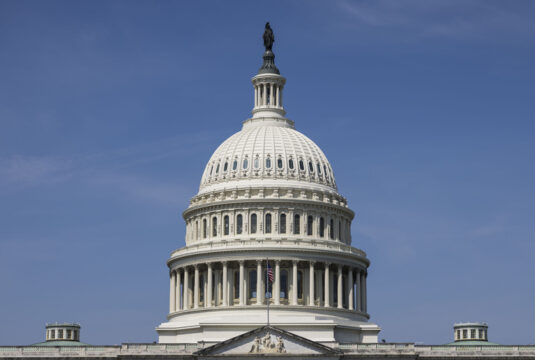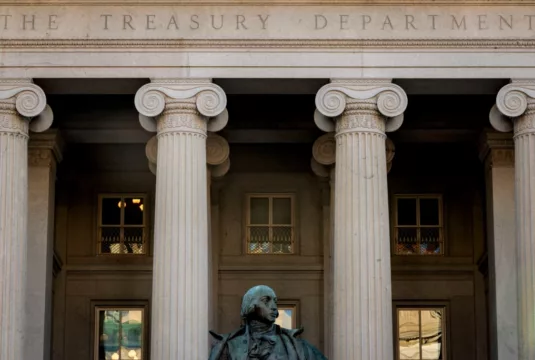Treasury Finalizes New Anticorruption Safeguards for U.S. Real Estate Sector and Private Investment Advisers
A statement from Transparency International U.S.
August 28, 2024
Washington, D.C.—Today the U.S. Department of Treasury’s Financial Crimes Enforcement Network (“FinCEN”) released final rules that extend anticorruption and anti-money laundering (“AML”) safeguards to professionals in the U.S.’s residential real estate market and to investment advisers working in the U.S. private investment sector.
The real estate rule establishes nationwide and permanent AML requirements for the sale of residential real estate that involve a legal entity (e.g., a company or corporation), regardless of the value of the transfer. The rule takes a risk-based approach and establishes a cascading reporting structure to ensure the filing and recordkeeping responsibilities fall to only one person involved in the sale. Importantly, the rule does not include several of the higher-risk exemptions included in the beneficial ownership reporting rules created by the Corporate Transparency Act (“CTA”).
The rule does not cover commercial real estate transactions, which are often more complex than residential transactions as they often involve multiple buyers and/or funding sources. FinCEN has stated publicly, however, its intention to assess how best to address AML risks in the commercial real estate sector.
The investment adviser rule would require investment advisers to conduct ongoing due diligence on their clients and to report suspicious activities, among other components. Investment brokers and dealers in the U.S., which largely work with publicly traded investments (e.g., mutual funds and companies listed on stock exchanges), have been subject to AML obligations for nearly 25 years. However, these broker-dealers are often absent from private investments such as private equity, hedge funds, and venture capital funds. FinCEN’s rule would introduce AML requirements to these investment advisers for the first time, finally closing a long-standing gap in our nation’s AML defenses.
Gary Kalman, Executive Director of Transparency International U.S. (TI US), issued the following statement upon the release of the final rule for the U.S. residential real estate sector:
The U.S. real estate sector has long been a favorite for kleptocrats and other criminals. The size, the relative stability and resilience, and the secrecy through which one can easily hide and launder illicit funds has made the U.S. real estate market a go-to investment for the world’s corrupt dictators, drug cartels, and U.S. adversaries. Once implemented, these rules will make the U.S. and our financial system safer and more secure.
The rule ends a more than twenty-year “temporary” exemption for the real estate sector from AML rules. And it fulfills a commitment made in the U.S. National Security Council’s national strategy on countering corruption.
The rule minimizes potential loopholes and anticipates attempts at creative workarounds by clever real estate lawyers: Treasury’s establishment of a reporting hierarchy will ensure that no bad actor slips through the cracks—even if a title insurance company, lawyer, or escrow agent happens to be absent from a given real estate purchase. The rule also covers sales to a comprehensive set of entities, including trusts and non-profit organizations, thereby limiting opportunities for evasion. And the final rule includes a new safeguard that will help prevent the reporting of false information.
In finalizing this rule, Treasury brings the U.S. in line with the growing international consensus around money laundering risks in real estate. Research from our office has shown that nearly 20 other OECD countries that we sampled applied AML rules to residential real estate transactions.
The commercial sector accounts for more than 30 percent of all real estate money laundering cases and we encourage Treasury to continue to move forward as promised and release rules to address those risks as soon as possible.
This rule represents yet another significant step in this Administration’s once-in-a-generation effort to modernize U.S. defenses against the serious and evolving money laundering threats to our financial system.
Scott Greytak, Director of Advocacy for Transparency International U.S. (TI US), issued the following statement regarding the final rule for investment advisers:
Today’s rule is a serious and much-needed development in the U.S.’s recent, historic efforts to end its role as the world’s go-to destination for dirty money—including money stolen through corruption. For years, gaps in rules for the private investment industry have led to countless cases of corrupt foreign officials, oligarchs, and authoritarian regimes stashing the proceeds of bribery, embezzlement, and other corruption crimes in American private equity, hedge funds, and venture capital funds.
FBI investigations, for instance, identified Russian billionaires who used venture capital to invest in American companies that specialized in military development, as well as Mexican drug cartels that used hedge funds to launder millions of dollars. The stories that have come to light document a direct and serious threat to American public safety and national security.
Today’s rule requiring investment advisers to perform standard AML checks is a straightforward and much-needed step toward patching holes in our nation’s AML framework that have made the U.S. such a strong magnet for dirty money.
In particular, Treasury’s decision to include investment advisers who are exempt from SEC registration requirements is very important: Thousands of unregistered investment advisers would otherwise be completely exempt from AML obligations, leaving the door open for criminals to move substantial sums of dirty money into the United States. And importantly, while Treasury has decided in its final rule to exempt mid-sized investment advisers that register with the SEC, given the perceived level of risk, we strongly urge Treasury to continue to monitor this category of advisers for increased risk.
This being said, today’s rule does not in and of itself require investment advisers to collect and verify information about the true, “beneficial” owners of their corporate clients. Treasury and the SEC recently proposed a separate rule that, if finalized, would do so, and we urge those agencies to complete and publish this essential piece of the investment adviser AML framework as quickly as possible.
###
TI US is part of the world’s largest coalition against corruption. In collaboration with national chapters in more than 100 countries, through research, policy development, and advocacy, we are leading the fight to turn our vision of a world free from corruption into reality.
Related Resources
- Read the final rule for the U.S. residential real estate sector from Treasury;
- Read the final rule for investment advisers from Treasury;
- Read TI US’s detailed comment on the proposed rule for real estate professionals;
- Read TI US’s detailed comment on the proposed rule for investment advisers;
- Read the TI US report A Welcome Mat for Corruption comparing 21 countries’ AML rules for real estate; and
- Read the joint report from TI US, the Financial Accountability and Corporate Transparency (“FACT”) Coalition, and Global Financial Integrity on the corruption and money laundering risks posed by the U.S. private investment industry.
Media Contacts
Gary Kalman, Executive Director, Transparency International U.S.
Phone: 215 439 7090
Email: gkalman@us.transparency.org
Twitter: @TransparencyUSA
Scott Greytak, Director of Advocacy, Transparency International U.S.
Phone: 202-642-1515
Email: sgreytak@transparency.org
Twitter: @TransparencyUSA





